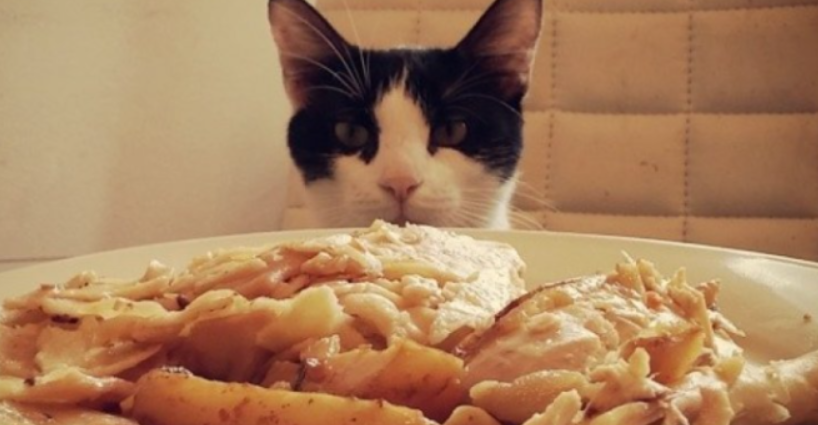Sometimes it’s hard to resist and not throw anything off the table to your pet who meows and wraps around his legs with that pleading look. However, giving pets human food can be very dangerous. Therefore, inform yourself well before you decide to treat your cat, because some foods that he eats with pleasure can have very negative effects on his digestive system.
DR. Elizabeth Colleran, president of the American Association of Felinologists, said the list of foods that cats should never eat is much shorter than people think. It includes onions, garlic, grapes or raisins, candy, chocolate, alcohol and caffeinated beverages, even in the smallest doses. But for many vets, the list is much longer.
In any case, a useful caveat is that human food should make up no more than 15 percent of a cat’s total diet.
Here are some foods you can feed your cat:
Vegetables
While humans are omnivores, cats are primarily carnivores, which means they need meat to survive. No Dr. Colleran says carbohydrates aren’t necessarily bad for cats. They simply get more energy from protein and get their fiber dose from grass and plants. However, if you see your cat jumping on houseplants, be careful, as some can be toxic.
Instead, serve her small portions of vegetables, such as roasted carrots, cooked asparagus or broccoli, squash or chopped lettuce. Vegetables should be washed well first and some, like carrots, should be heat treated, as raw vegetables are difficult to digest.
Mr.
Many cats love cheese and it is a good source of protein for them. And some will eat it without a problem, although you will also find dairy products on the lists of foods they should not eat. This is because many cats become lactose intolerant as they age, so cheese, milk and other dairy products cause diarrhea. If you are still stuck trying to get your cat to eat some dairy, give her very small pieces of cheese so you can see how her digestive system reacts. Cow cheese and yogurt are definitely a better option than milk.
If your cat already enjoys small portions of dairy as a treat from time to time, this is also a good trick for giving medication when needed.
Fish
Most cats love fish and it is really nutritious for them. So, if you make a tuna sandwich, the piece shouldn’t hurt your pet either. But, and there is always a “but”, you need to be aware of some risks if you want to give her fish more often. High levels of polyunsaturated fatty acids in tuna can interfere with a cat’s vitamin E supply. In addition, carnivorous fish such as tuna, salmon and swordfish contain higher levels of mercury than cod or leaf, for example.
And while some veterinarians say it’s OK to give cats raw fish, Dr. Colleran disagrees. He believes raw fish contains too many enzymes that break down thiamine, a very important vitamin B1.
Eggs
Eggs are good for humans and cats because they are rich in protein. Many textbooks that promote cooking for pets encourage cat owners to serve them eggs. In addition, even in the wild, a cat will very often ravage a bird’s nest and eat its eggs. Still, Dr. Colleran again cautioned against giving raw eggs, saying the risk of infection with salmonella or E. coli bacteria is too high. “Not only do you not want your cat to get sick, but you don’t want those bacteria in your environment,” he notes for Animal Planet. It’s also important to note that eggs are strong allergens, so start slowly and study reactions.
Meat
Since cats are carnivores, meat naturally tops the list of foods they may consume. Cooked chicken is probably the best choice, while raw meat carries the same risks as eggs and fish. There’s also the issue of the fat found in meat, but others. Colleran explains that it’s mostly about calories. Fat is nutritious in itself, but cats, like humans, should not consume it in excessive amounts because they can suffer from obesity. Even if your cat is active enough for fatty foods, too much fat can cause diarrhea in both her and humans. Therefore, you should not let her lick your plate after lunch.
In summary, moderation is as important in cat nutrition as regular monitoring of food reactions. Even the recommended and allowed feeds can cause different reactions in different cats, so it is not bad to consult a veterinarian who already knows your cat before changing the diet.
